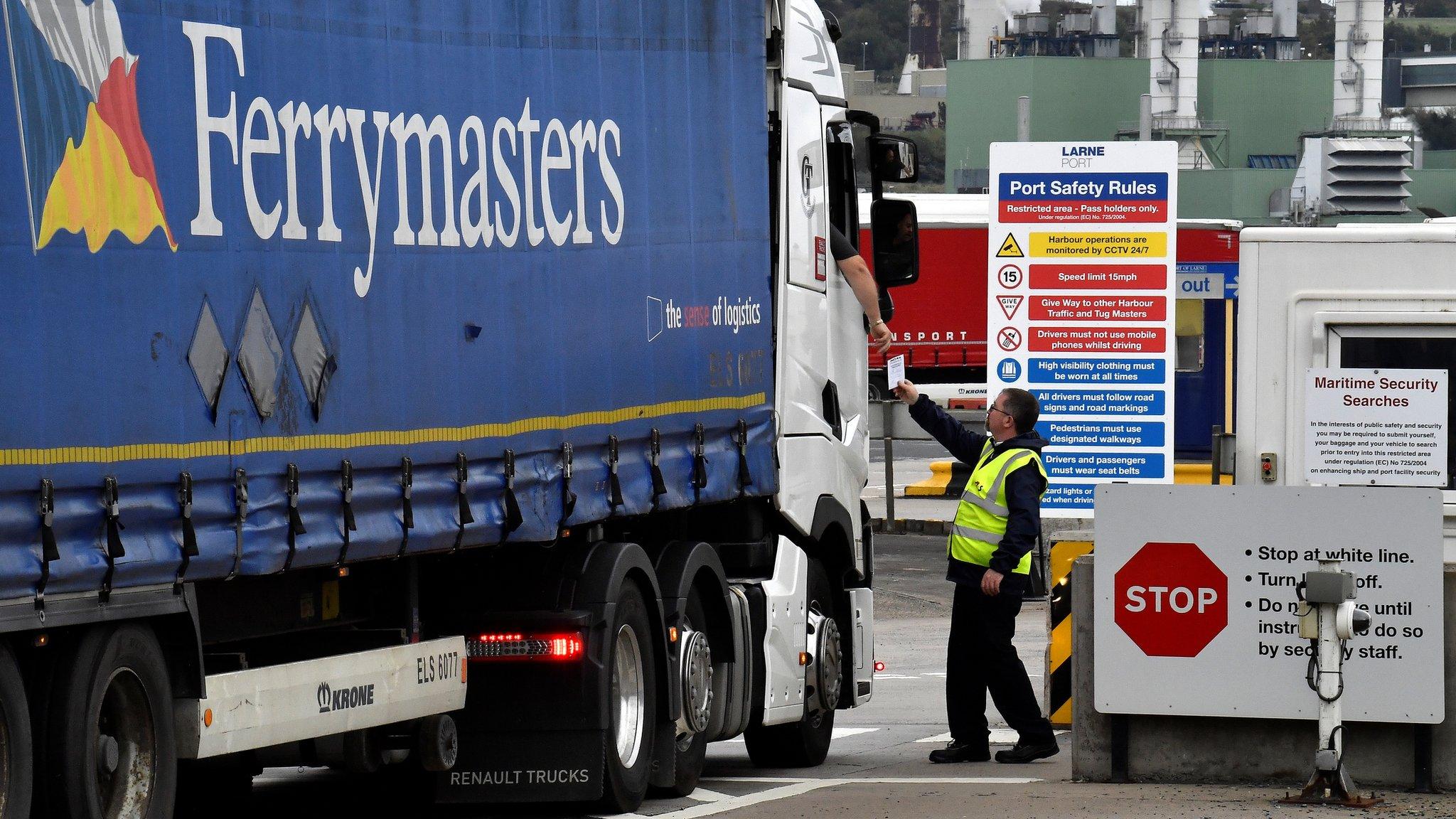Brexit: Special goods category 'would improve NI Protocol'
- Published
- comments
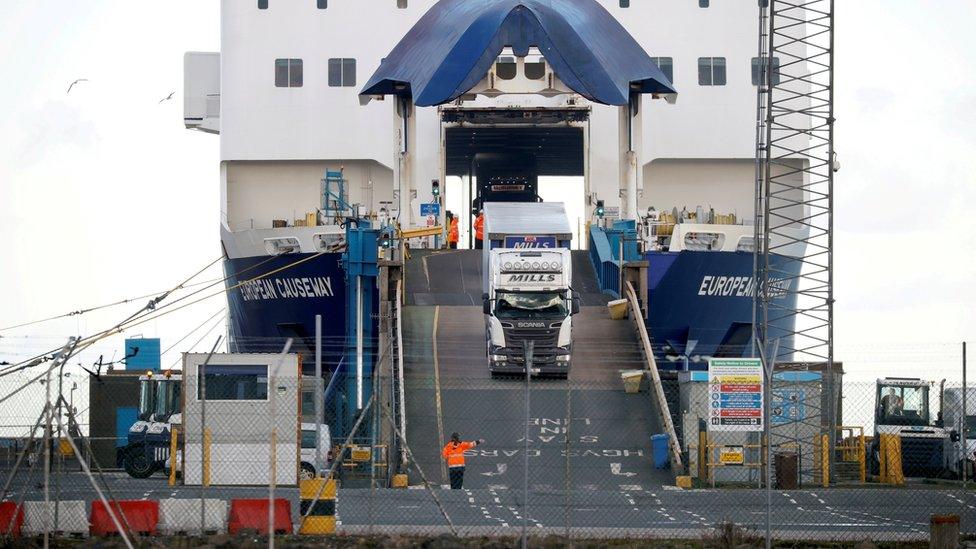
Special category goods would have to meet certain conditions, like being bound to Northern Ireland for final sale
The EU and UK could agree a special category of goods which would not require checks when moving from Great Britain to Northern Ireland, a think tank has suggested.
It is part of a package of measures put forward by the Tony Blair Institute to improve the Northern Ireland Protocol.
The protocol is the Brexit deal which prevents a hard Irish border by keeping NI inside the EU's single market.
That also creates a new trade border between NI and the rest of the UK.
The EU accepts that is causing difficulties for businesses.
In October, the EU made suggestions aimed at reducing the practical impacts of the protocol.
The UK wants more far reaching changes to its operation and governance.
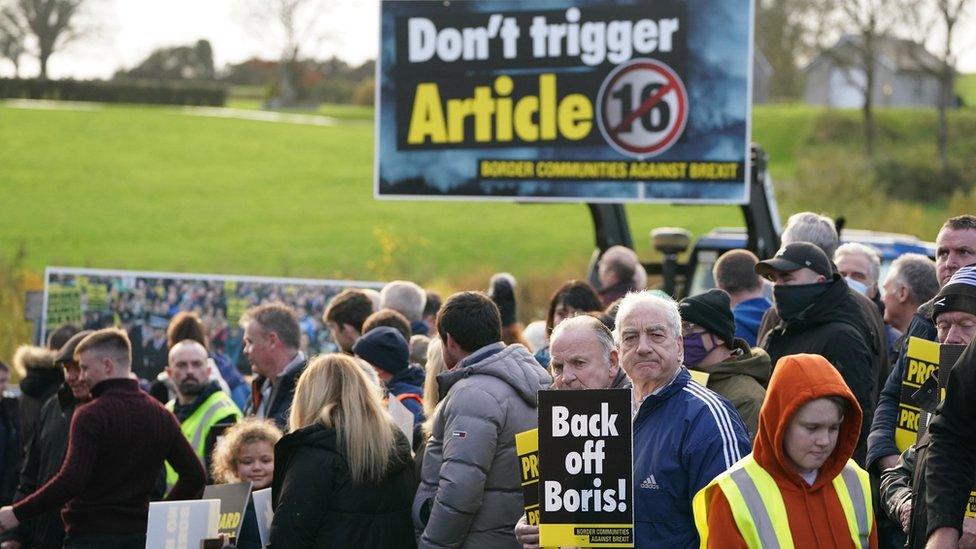
Protesters from Border Communities Against Brexit recently demonstrated against the government triggering Article 16
The UK and EU are negotiating potential change to the protocol but have made limited progress.
Anton Spisak, policy lead at the Tony Blair Institute, said: "There are no easy answers to fix the protocol.
"But if there is a way forward, it involves the UK accepting responsibility for the protocol and shifting away from its absolutist position, and the EU expanding its offer from October.
"This is the space for compromise and where our proposals come in, external."
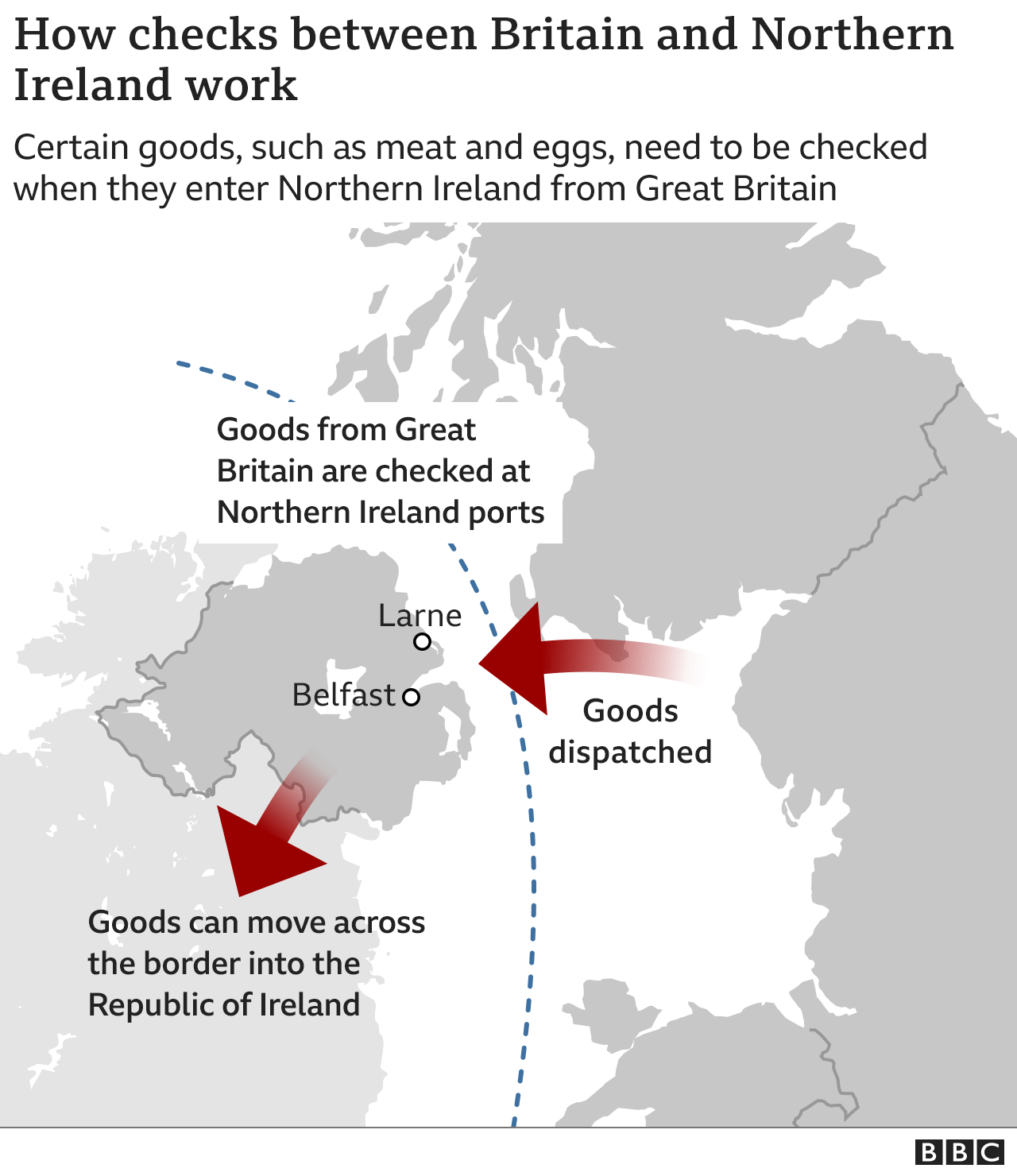

The major idea is for a new special category of "Northern Ireland-approved" goods moving from Great Britain.
These would be exempt from requirements under EU law, provided they meet specific conditions:
that their disrupted supply risks having detrimental effects on the Northern Ireland economy and society
that they are bound to Northern Ireland for final sale and consumption
that they meet minimum requirements agreed between the UK and the EU
Article 16 caution
The paper from the institute also cautions against the UK using the Article 16 safeguard mechanism.
It is the provision which allows parts of the protocol to be unilaterally suspended if they are causing serious difficulties.
Mr Spisak said that while it is a legitimate part of the protocol, its use would be "grave error of strategy".
He said it would mean the UK setting a trap for itself "as it would eventually be forced to choose between breaking its international obligations or backing down to the EU".
Related topics
- Published2 February 2024

- Published1 December 2021
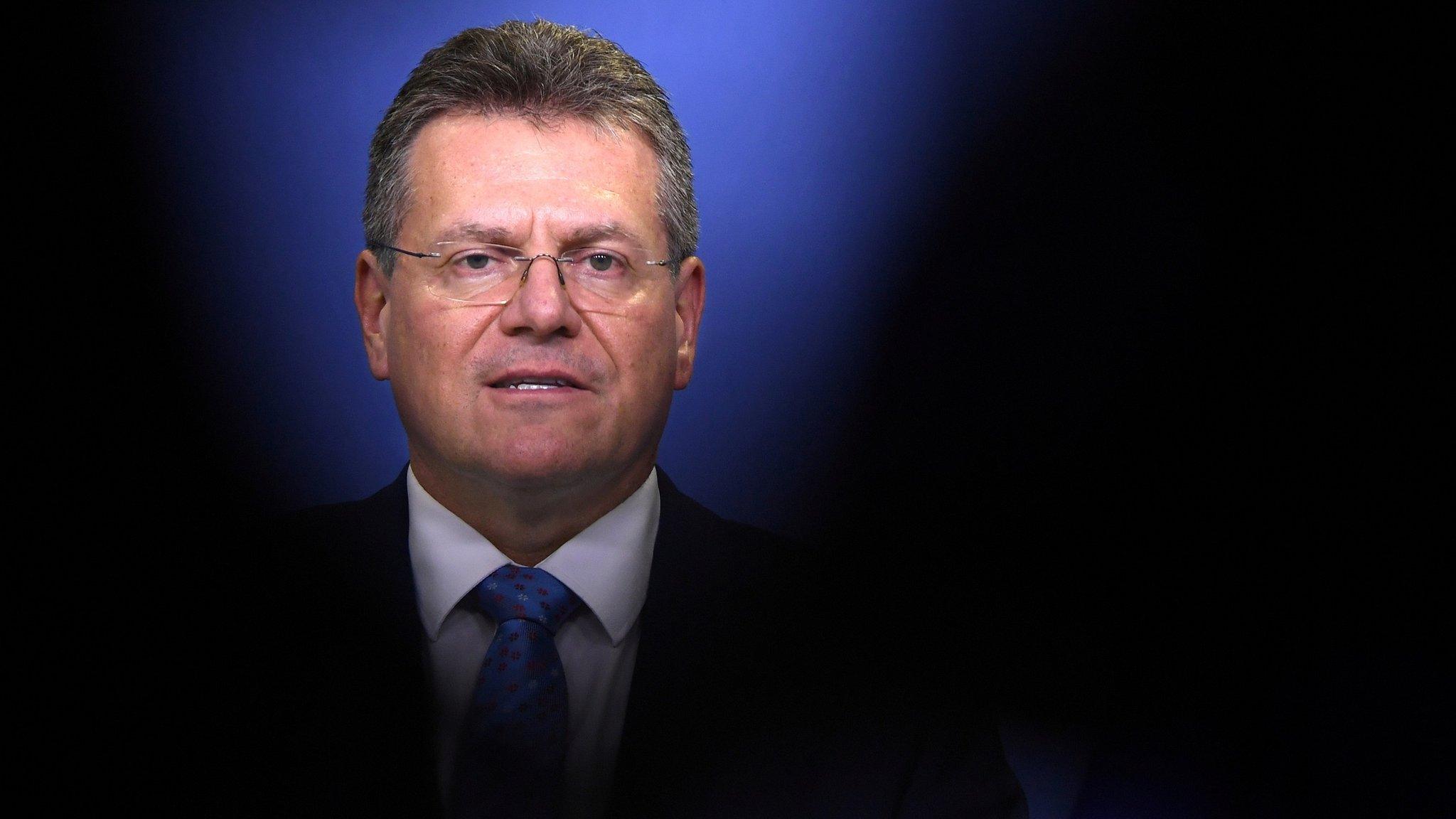
- Published1 December 2021
